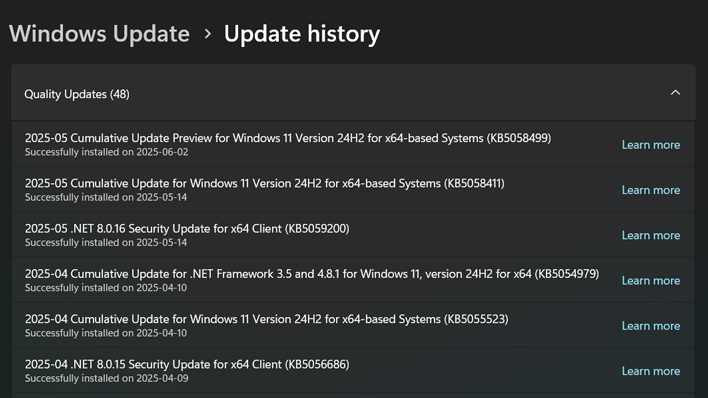Windows Is Finally Getting An App Update Mechanism To One-Up MacOS
Most everyone is used to the Windows rigmarole of updating applications, especially if you have a lot of them. It's so ingrained in our minds that we don't even think about it -- we just click the update request dialogs like zombies, hitting "Yes" and "Next", and it's become culturally ingrained as if it were a mass case of Stockholm Syndrome. Bonus points if it's an independent app with no automatic update built in, and you have to hunt on the website for the most recent version. If we're using a corporate PC, the IT boffins will probably be using one of the many available updater utilities.
This situation is quite silly in the year 2025, especially when comparing to iOS, Android, and even Linux, all of which have automatic- or mass-update mechanisms for third party apps. Even macOS, with its much-vaunted focus on ease of use, doesn't offer a way for apps to update automatically unless they were obtained from the App Store.

Soon, your favorite applications may be in this list.
Microsoft is now previewing an official, honest-to-goodness Windows feature for updating potentially every application. It's called the "Windows Update orchestration platform." The post on the Windows It Pro blog explains the many cons of the current status quo, and details how the new functionality is a potential panacea for those. To wit, developers only need to add their own application's update checker to the orchestrator, and provide some additional metadata. The orchestrator will then run said updater on a regular basis so the latest version can be delivered smoothly.
The orchestrator even works with software that's not packaged as an MSIX or APPX, meaning that developers wishing to use the feature aren't forced to change the way they package their software if it doesn't conform to either of those standards. To be clear, much like with macOS, applications downloaded from the Microsoft Store already enjoyed this auto-update mechanism.
Some commenters on the blog do point out an existing hitch that's not directly related to the delivery mechanism, but is noneless a roadblock: Windows' built-in SmartScreen will flag many manually downloaded applications with an alert, particularly those for smaller, lesser-known applications. Developers can work around that by digitally signing their executables (easy and cheap these days), but having more clarity on the interaction between indie apps and this update mechanism would be good. Interested developers can email unifiedorchestrator@service.microsoft.com try this out.

